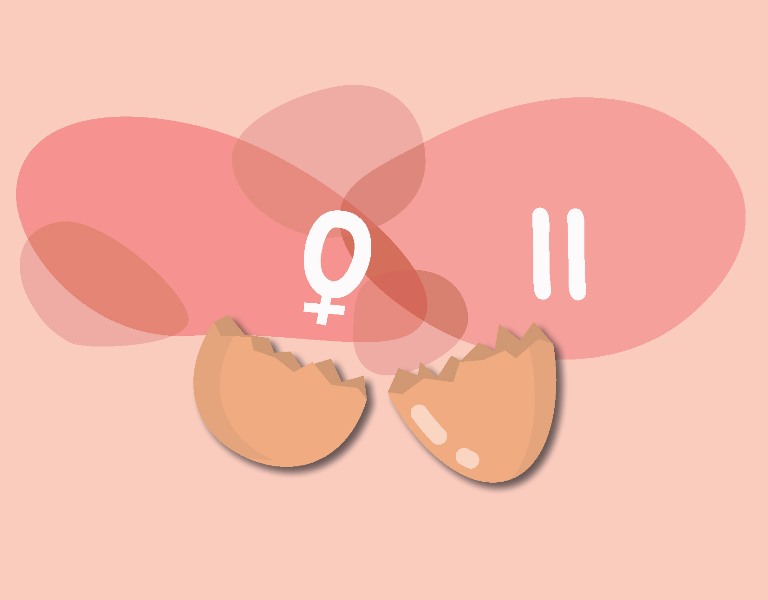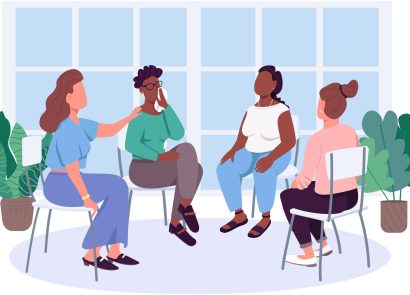There is no cure for menopause, because menopause is not a ‘disease’, and whatever solutions you choose will simply mitigate to a greater or lesser degree the impact it has on you. But when you’re going through a catastrophic loss of hormones, it seems sensible enough to try to top them up.
There are women who swear by HRT, women who swear never to take it and many others who simply don’t know what to do. To add to the confusion, GPs are similarly divided, though I have to say that every single menopause expert to whom we spoke (bearing in mind they have specific and specialised training in women’s health) was absolutely committed to its positive effects. Every single one. However, not one of them recommended eye of newt and toe of frog boiled up in a cauldron at midnight and ingested by the light of a harvest moon, nor any of the extraordinary, unproven and staggeringly overpriced ‘remedies’ available on the internet. HRT – and I’ve acknowledged there are risks – has at least got countless studies proving its efficacy.
In 2014, following two years of enduring my own undiagnosed and exhausting symptoms, I was finally prescribed the first version of the non-alcoholic cocktail on which I now thrive: transdermal (absorbed through the skin) oestrogen (initially in the form of patches, which I didn’t like, as they failed to break through the barrier of my body lotion); micronised progesterone, in the form of a tablet; and, initially, testosterone gel. Perhaps not overnight, but over a matter of weeks, the agonies of insomnia and the misery of being perpetually worried had faded to the back corridors of my memory. I was, to all intents and purposes, my old self, and I welcomed her. She had been absent for a long time.
I suppose I may be a bit too gung-ho when it comes to medication, as a misspent youth means that there are few drugs I haven’t tried or cocktails I’ve turned down. Obviously, I’m not advocating a party lifestyle. One of the pleasurable aspects of speaking to a more mature (I assume) audience is a sense of diminished personal responsibility.
That cautionary note aside, middle age is surely no time to turn down substances that genuinely improve your quality of life. In truth, after two years of debilitating symptoms, I’d have probably embraced heroin if someone had told me it would help, but luckily, I wasn’t mixing in such circles.
When my gynaecologist first suggested I try HRT – predominantly to preserve bone density as I edged towards osteoporosis, but also to help with my poor sleep and anxiety – I was only too happy to slap on a patch and bugger the consequences. At that point, like most women, I thought I knew about the risk HRT might pose when it came to breast cancer, but it seemed worth taking it for the sake of a good night’s sleep, the end of earlyhours anxieties, a boost to my bone and heart health, as well as possibly lowering of the chance of type 2 diabetes and – potentially – Alzheimer’s disease. I was wary, having suffered from lumps in my breasts (benign and transitory) in the past. I now have a regular breast check.
But I have heard countless stories about women being refused HRT. It’s amazing how many opinions there are about what women should and shouldn’t do with our bodies, and how much pain we ought to endure … that don’t come from women themselves. As delivery vessels for the species, we’ve been considered common property since time began. Decisions about what is and isn’t best for us have, for thousands of years, been made by people with an entirely different perspective, plus a penis. We now understand that the physiological differences between men and women are far more extensive than simply having different sex organs. The fact that women are governed by oestrogen and men by testosterone means that our reactions to many conditions are different. But how can men possibly comprehend specifically female experiences, such as childbirth, pregnancy, periods and menopause, let alone the need to alleviate them? A friend of mine explains the lack of male empathy for female complaints (clearly, this is a massive generalisation) by pointing out that her husband was dismissive to the point of rudeness about the agony of childbirth, but incredibly loving whenever she had a hangover. “He understood that pain, so he was able to empathise,”she says (incidentally, they are now divorced).
I’m pretty sure that almost every woman of menopause age, regardless of symptoms, has a strong opinion about HRT, and most middle-aged men don’t. One woman recently told me that her GP stated that he didn’t ‘rate’ HRT, so wasn’t going to prescribe it for her. She could apparently do perfectly well without it. I wonder what study his opinion was based on, or whether he’d just been flicking through his morning newspaper… or whether he ever posed himself the same question before taking a painkiller or Viagra?
For more, read this Cracking the Menopause: While Keeping Yourself Together by Mariella Frostrup and Alice Smellie is available to buy now (Bluebird, £20)



















